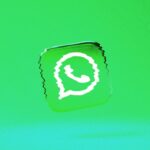Minerva Lithium, a startup co-founded by Hemali Rathnayake (CTO) and Sheeba Dawood (CEO) has won the top prize at TechCrunch Disrupt‘s annual Startup Battlefield. The startup, which was among the five finalists won this year’s competition for its innovative Nano Mosaic, a coordinated polymer framework that’s capable of extracting critical materials from brine in three days.
Helping curb the all-electric problem
The demand for digital products and services has jumped significantly over the past few years. Electric cars alone crossed 2 million during the first quarter of 2022. Even Sri Lanka has set its eyes on EVs during the interim budget for 2022. Then there’s everything from smartwatches to iPhones that continue to grow in demand each year. One major implication of this is the seemingly exponential need for lithium-ion batteries that power many of our tech devices today. More accurately, this means a sharp uptick in global demands for critical materials like Lithium.
Here’s the problem. Extracting Lithium is expensive, time-consuming, and ironically, a growing environmental problem. It typically starts off with pumping brine in from the underground. It then becomes denser, which could take up to two years for it to be dense enough for processing. Following this, the remaining solution undergoes several stages of processing before becoming viable for batteries.
Startups like Minerva Lithium aim to offer a more viable solution. The company’s proprietary Nano Mosaic membrane filter system, which resembles black gravel, can extract critical materials from brine in just three days. The company states that it can extract one metric ton of lithium with 30,000 gallons of water during this period. In contrast, evaporative brine processing would require 500,000 gallons of water to extract the same amount, as per CEO Sheeba Dawood.
As opposed to the conventional method, Minerva’s solution involves a two-step process. Talking about the procedure, a metal column containing a white filtration bag with Nano Mosaic inside will capture all the minerals. Once lithium is collected it goes into a second column after which the lithium is taken out of the material and heated into crystals.
Minerva Lithium’s business model will see the company banking on selling lithium to manufacturers. This translates to offering its Nano Mosaic to brine operators or bromine producers for cheap (or free). Minerva will buy the extracted raw lithium at a cheap rate and sell it to battery manufacturers at the market rate.
The Minerva Lithium way
Minerva Lithium is a spinoff of the University of North Carolina Greensboro (UNCG) that kicked off back in 2020. Dawood met Rathnayake at the university while on her PhD at UNCG’s joint school of nanoscience and engineering, where Rathnayake was her professor. Prior to founding the company, Rathnayake and Dawood took part in the National Science Foundation (NSF) program. This served as an opportunity for the duo to interview over 200 potential customers on how to achieve product-market fit for their lithium extraction idea.
By 2021, Minerva Lithium got its preseed funding from the NSF. Leading up to TechCrunch Disrupt 2022’s Startup Battlefield, the company has raised USD 500,000. At Startup Battlefield, the startup sought USD 1 million in funding for it to move forward with the pilot demonstration.
According to TechCrunch, this pilot demonstration involves treating about 171 gallons of brine per minute, amounting to 11 tons of lithium per day. Current prices would put that at about USD 230 million in revenue per annum.
Additionally, Minerva is looking to get new technicians onboard as the startup aims at scaling its operations beyond its four-member team. Talking about its future, Minerva Lithium sees it going beyond just lithium. Its Nano Mosaic could potentially be used to extract other critical materials like nickel and cobolt, along with the idea for a possible water purification method.





GIPHY App Key not set. Please check settings